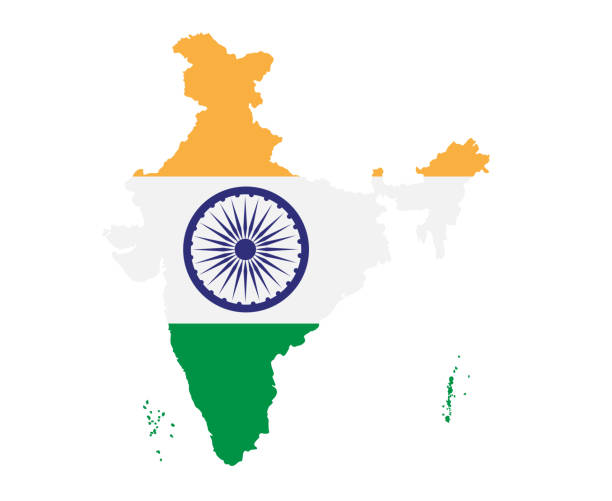In recent times, India has been striving to transform itself by undertaking many new initiatives that include Make in India, Atmanirbhar Bharat, promoting entrepreneurship, increasing exports, bettering international relationships and economy, to name a few. In this process, it is quite imperative that all states and Union Territories (UTs) with their diverse potential join hands with the Central government by striving to transform themselves and contribute to their own prosperity, as well as that of the nation. Without transforming its states/UTs, India cannot hope to become a transformed nation. Here, I offer a simple and feasible approach for all our states for their consideration.
First, let us understand some basic principles. A most relevant principle is that of Pareto’s 80/20 principle which states that in any organization, 20% of people contribute to 80% of profits and 80% manpower contributes to a mere 20% of the outcomes. This principle is applicable to diverse institutions like the industries, universities, and research /academic / political organizations, ministries and offices of governance etc. This principle is also applicable even in apple/orange/mango orchards where as a rule 20% of the plants contribute to 80% yield. The ratio of productive and unproductive personnel (as also the plants of the orchard) may change a bit in a given organization, but the 80/20 principle remains indubitable. Therefore, for any head of the institution, it makes sense to focus on the 20% who make significant contributions and keep the system viable/profitable. Ultimately, it is a few individuals who make a big difference to the system, be it an organization or a state or the nation.
To validate the above claims, let me cite two names, Homi Bhabha and Vikram Sarabhai, the two great visionaries who made huge contributions to India’s scientific programs (atomic energy and space research programs). A.P.J. Kalam ably carried forward the space programs. The green, white and blue revolutions became possible thanks to M.S. Swamnathan, Verghese Kurien and, Hiralal Chaudhari and Arun Krishnan respectively. Likewise, N.R. Naryanamurthy, Nandan Nilekani, Kiran Mazumdar Shaw, Adar Poonawala, Krishna Ella made notable contributions to information technology / biotechnology and brought glory to India. Likewise, many business tycoons greatly impacted prosperity of the country. A classic example would be to note with gratitude the unparalleled contributions of the tiny population of Parsis (Zoroastrians who migrated from Iran to India). They include, Ardeshir Godrej, Dadabhai Naoroji, Sir DorabJi Tata, Jemsetji Tata, J.R.D. Tata, Ratan Tata, Sir Phiroj Shah Mehta, Dinshaw Manekji Petit, Field Marshal Sam Manekshaw, and Cyrus Poonawala, to name a few. In all this, undoubtedly leadership role of individuals has played a significant role.
In contemporary times, at the central government ministry level, the distinguished services of S. Jaishankar, Hardeep Singh Puri, Aswini Vaishnav, Ajit Doval, and so on who are actually bureaucrats, guided significant accomplishments in diverse areas and enhanced the national and global image of India. Nitin Gadkari is an exceptional example among the modern politicians who has passion and obsession with his work that enabled him to transform the Indian highway roads to international standards. Though I have mentioned a few names, most other central ministers have contributed appreciably under the able guidance of our Prime Minister. At the state level, Yogi Adityanath stands out. This highlights the importance of competency in effecting transformative changes in the governance processes. The inimitable leadership and vision of Prime Minister Narendra Modi deserves applause for his foresight in guiding and supporting these stalwarts.
It is impossible for most academicians, educationists, scientists, technocrats and so on to win elections as they lack the needed wherewithal money—muscle power, political background etc. Further, votes are cast mostly in favour of caste, community, religion and in recent times, incentives/freebies, rather than the competency and virtues of candidates. Therefore, people who are in jail or on bail still get elected with good margins. They receive hero’s welcome when they come out of jail. Apparently, our democratic system and voters’ mindset are yet to evolve to overcome the divide and rule policy, and attach importance to overall well-being of all citizens and the nation, rather than to political parties and other considerations while voting.
In the face of intensive global challenges India needs to make tangible all round progress to ease the lives of its citizens by remaining competitive. The vital areas include education, science and technology, information technology, artificial intelligence (AI), trade, economy, healthcare, cross border terrorism, international relations and defence, to name a few. In this venture, the state and Central governments have pivotal and supporting roles to play. Undoubtedly, the nation as a whole fails when the states fail. One without the other’s support does not thrive well. Blaming each other becomes a combat of shadows with no outcome. In short, it is imperative that the states do well. So, what is the way out?
Here, let me suggest a rather simple way for accomplishing effective governance of states and Union Territories. The Chief Ministers may identify five or six persons with impeccable track record, competency and vision to head important ministries like: Home, Revenue, Public Works, Education and Healthcare and appoint them as the cabinet ministers with a mandate to usher needed transactional and transformational changes in the respective portfolios. These persons have to assume the role of Chief Executive Officers (CEOs) and strive for ensuring proper law and order, sustenance of infrastructure development, promoting globally competent education, creating affordable healthcare systems (especially for the elders) and so on. These are typical key issues of any state and addressing them is certain to transform the states. Good governance alone can attract investors, industries and generate employment opportunities.
Lastly, a mid-term evaluation of all ministries must be undertaken. Ideally, a CM should involve himself mainly in micromanagement of ministries and provide vision and leadership rather than head any ministry. He can have a think tank or vision group consisting of eminent citizens of the state/country to guide him on matters related to growth and development of the state. In short, we need at least 20% competent ministers who are willing to serve as the CEOs so as to compensate for the remaining 80% underperforming ministries. Relying on corrupt and incompetent legislators with little or no vision, concern or commitment just because they are elected is no longer a viable option. Under the prevailing ecosystem, one feasible option is to commission befitting experts from outside the political milieu to man ~20% or more key ministries and accomplish transformation of states/UTs to global levels. Only then can India become a transformed nation.
The author is an academic and former Vice Chancellor of Karnatak University.




